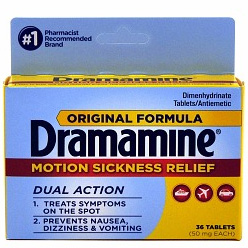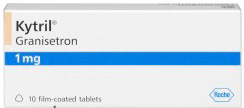Plaquenil is an oral medication that belongs to a group of drugs known as antimalarials. It is primarily used for the prevention and treatment of malaria caused by mosquito bites. However, Plaquenil is also prescribed for the management of certain autoimmune diseases, such as rheumatoid arthritis and lupus erythematosus. Its active ingredient, hydroxychloroquine sulfate, works by interfering with the growth and survival of parasites, as well as by modulating the immune system to reduce inflammation.
Plaquenil should not be used if you have a known allergy to hydroxychloroquine sulfate or any other component present in the medication. Furthermore, it is crucial to inform your healthcare provider about any pre-existing medical conditions you have, especially if you have liver disease, kidney problems, certain blood disorders, or a history of retinopathy or vision changes. Caution is required if you have a glucose-6-phosphate dehydrogenase deficiency or are taking other medications that can cause QT prolongation. Plaquenil must not be used during pregnancy or while breastfeeding.
During the course of treatment with Plaquenil, several side effects may occur. Common side effects include headache, dizziness, nausea, vomiting, stomach pain, and diarrhea. These usually subside with continued use or by taking the medication with food. However, if these side effects persist or worsen, it is important to seek medical attention. Plaquenil can also cause serious side effects such as muscle weakness, vision changes, hearing loss, mood changes, and signs of liver or blood disorders. Contact your healthcare provider immediately if you experience any of these symptoms.
Plaquenil should be taken exactly as prescribed by your healthcare provider. It is usually taken once or twice daily with a meal or a glass of milk to minimize gastrointestinal side effects. The exact dosage and duration of treatment will depend on the condition being treated and individual factors. If you accidentally miss a dose, take it as soon as you remember. However, if it is close to the time for your next dose, skip the missed dose and continue with your regular dosing schedule. Do not double the dose to make up for a missed one. In the case of overdose, seek immediate medical attention or contact a poison control center.
Plaquenil may interact with certain medications, so it is important to inform your healthcare provider about all the drugs you are currently taking. Avoid using Plaquenil in conjunction with other medicines that can cause QT prolongation, such as certain antibiotics, antifungals, antidepressants, and heart medications. Plaquenil can enhance the effects of certain diabetes medications, potentially leading to low blood sugar levels. Additionally, the use of Plaquenil with other antimalarials or immunosuppressive drugs may increase the risk of retinopathy. Your healthcare provider will assess the potential risks and benefits to determine the most suitable treatment plan.
-
Q: Can Plaquenil be used as a preventive measure against malaria?
A: Yes, Plaquenil can be used as a preventive measure for malaria in individuals traveling to or residing in malaria-endemic areas. It is important to follow the prescribed dosage and duration of treatment, as well as combining it with additional protective measures such as insect repellents and bed nets.
-
Q: How long does it take for Plaquenil to show its efficacy?
A: Plaquenil’s effectiveness may vary depending on the individual and the condition being treated. It may take several weeks or months before significant improvements are noticed. It is important to continue taking the medication as directed and consult your healthcare provider if there are no apparent benefits or if new symptoms arise.
-
Q: Are routine eye examinations necessary while taking Plaquenil?
A: Yes, it is recommended to undergo regular eye examinations, including tests such as visual acuity, visual fields, and spectral-domain optical coherence tomography (SD-OCT), especially if you are on a long-term Plaquenil treatment. These assessments help detect any potential retinal changes or ocular toxicity associated with the medication.
-
Q: Can Plaquenil interact with over-the-counter medications or herbal supplements?
A: Yes, Plaquenil can interact with certain over-the-counter medications or herbal supplements, such as non-steroidal anti-inflammatory drugs (NSAIDs), acid-suppressing agents, or St. John’s wort. It is crucial to inform your healthcare provider about all the medications, supplements, and herbal products you are using to mitigate potential interactions.
-
Q: Can Plaquenil be discontinued abruptly?
A: Plaquenil should not be discontinued abruptly without consulting your healthcare provider. It is important to follow the recommended tapering schedule to minimize the risk of disease flare-ups or other adverse effects. Contact your healthcare provider for guidance on how to safely discontinue the medication when necessary.






Reviews
There are no reviews yet.